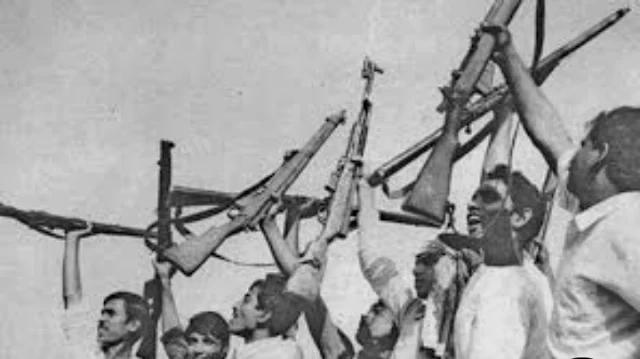Bangladesh Liberation War (1971): Details, Timeline, and Impact
The Bangladesh Liberation War (March–December 1971) was a revolutionary conflict that led to the independence of Bangladesh (formerly East Pakistan) from Pakistan. The war was marked by genocide, guerrilla warfare, and international intervention, resulting in the creation of a new nation.
Background & Causes Partition of India (1947):
After British rule ended, Pakistan was created as a Muslim-majority state in two wings: West Pakistan (modern-day Pakistan) and East Pakistan (modern-day Bangladesh).
Despite having a larger population, East Pakistan was politically and economically dominated by West Pakistan.
Economic & Political Discrimination:
East Pakistan generated most of Pakistan’s exports (jute, tea) but received little investment.
The 1965 Indo-Pak War further exposed neglect, as East Pakistan was left defenseless.
1970 Elections & Crackdown:
The Awami League, led by Sheikh Mujibur Rahman, won a majority in Pakistan’s elections.
West Pakistan’s military ruler, General Yahya Khan, refused to transfer power, leading to mass protests.
Key Events & Timeline:
March 1971: Crackdown & Declaration of Independence
March 7, 1971: Sheikh Mujibur Rahman delivered his historic speech at Ramna Race Course, calling for independence.
March 25, 1971 (Operation Searchlight):
The Pakistani military launched a brutal crackdown in Dhaka, killing students, intellectuals, and civilians.
Sheikh Mujib was arrested and taken to West Pakistan.
March 26, 1971: Major Ziaur Rahman (later President of Bangladesh) declared independence on behalf of Mujib.
April–November 1971: Guerrilla War & Genocide
Mukti Bahini (Freedom Fighters): Civilian and military forces (led by General M.A.G. Osmani) waged guerrilla warfare.
Pakistan Army’s Atrocities:
Mass killings, rape, and destruction (estimated 3 million deaths).
10 million refugees fled to India.
India’s Support: India trained and armed Mukti Bahini, leading to clashes with Pakistan.
December 1971: Full-Scale War & Victory
December 3, 1971: Pakistan attacked Indian airbases, triggering the Indo-Pak War (1971).
December 14–16, 1971: Indian Army and Mukti Bahini captured key cities (Dhaka, Jessore, Sylhet).
December 16, 1971: Pakistan surrendered (Instrument of Surrender signed by General A.A.K. Niazi).
Bangladesh became an independent nation.
Major Figures:
Leader Role
Sheikh Mujibur Rahman Leader of Awami League, "Father of Bangladesh"
General M.A.G. Osmani Commander-in-Chief, Mukti Bahini
Major Ziaur Rahman Declared independence, later President
Indira Gandhi Indian PM, supported Bangladesh
General Yahya Khan Pakistani dictator, ordered crackdown
General A.A.K. Niazi Pakistani commander who surrendered
Casualties & War Crimes
Deaths: Estimated 3 million (mostly civilians).
Rape Victims: 200,000–400,000 women (systematic campaign by Pakistani forces).
Refugees: 10 million fled to India.
Intellectual Killings: On December 14, 1971, Pakistani forces executed professors, journalists, and doctors.
Aftermath & Legacy:
✅ Bangladesh Independence: Officially recognized on December 16, 1971.
✅ 1972: Sheikh Mujibur Rahman became Prime Minister.
✅ Simla Agreement (1972): India and Pakistan formalized ceasefire terms.
✅ War Crimes Trials: Ongoing trials of collaborators (Razakars, Al-Badr).
International Recognition
India: Played a decisive role in Bangladesh’s victory.
USA & China: Supported Pakistan (Cold War alliances).
USSR: Backed India and Bangladesh.
Why the 1971 War Matters
✔ Birth of a Nation: Bangladesh became the world’s 7th most populous country.
✔ Humanitarian Crisis: One of the worst genocides of the 20th century.
✔ Geopolitical Shift: Weakened Pakistan, strengthened India’s influence.
Would you like details on specific battles, military strategies, or personal stories from the war?





